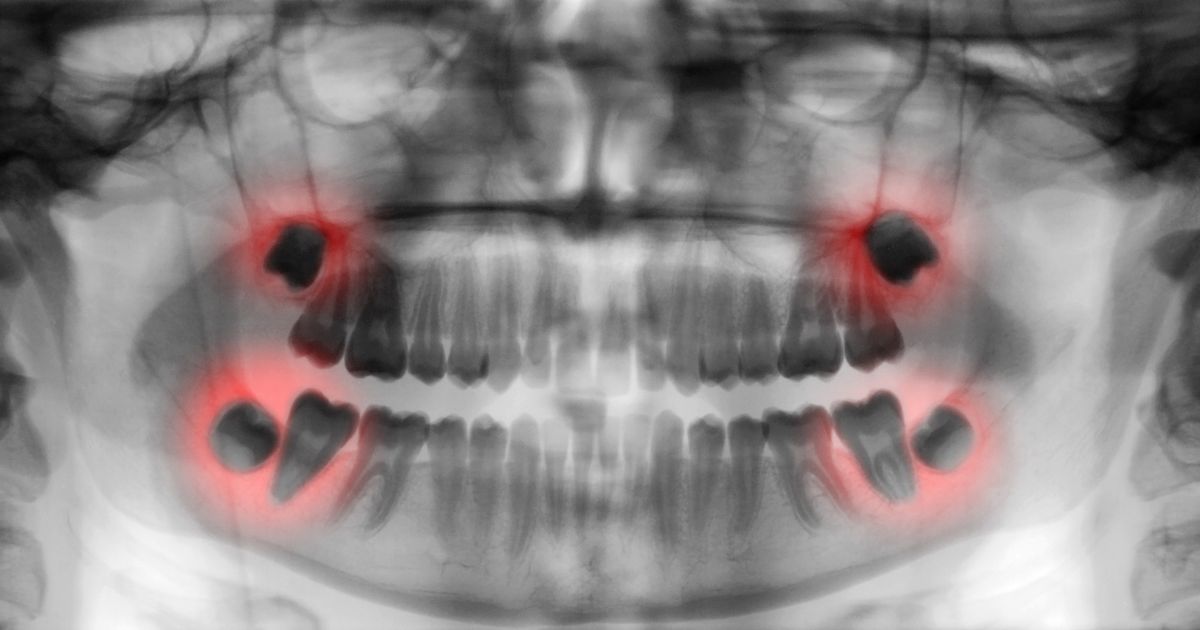Wisdom teeth are the common name for the third molars, and impacted wisdom teeth are partially or fully trapped in the gums or jawbone. Around 90 percent of the population has at least one impacted wisdom tooth; some people do not even realize they have wisdom teeth because they have not erupted yet. Wisdom teeth can cause various problems even under the surface, so surgical removal is often recommended.
Common Problems Caused by Impacted Wisdom Teeth
Cavities occur when impacted wisdom teeth start to decay. Wisdom teeth are located at the very back of the mouth, where it is difficult to reach and properly clean them.
Crowding results when an impacted wisdom tooth pushes on the adjacent teeth. This can shift their position and cause structural damage. Crooked teeth affect the bite making it harder to bite down and possibly irritating the cheek tissue. Sometimes, pressure from an impacted wisdom tooth can prevent the secondary molars from erupting on time.
Cysts can form if the sac that holds the crown of the tooth remains in the bone and fills with fluid.
Gum disease can develop from plaque build-up, affecting the surrounding teeth.
Headaches are sometimes possible and present as radiating pain in the jaw, face, and head.
Infections can start around a partially erupted wisdom tooth if food becomes trapped between the gum and tooth, allowing bacteria to develop. Impacted wisdom teeth are more prone to infection and abscesses.
What Are Some Common Signs of Problems With Wisdom Teeth?
Some signs that you should see your doctor about your wisdom teeth include:
- Swelling or pain in the jawbone or face
- Swollen, red, or bleeding gums
- Trouble opening your mouth all the way
- Bad taste in your mouth
- Bad breath
Wisdom teeth become more firmly anchored in the jawbone the longer they are allowed to develop. The older the patient, the more difficult it becomes to remove them, which is why teenagers often need to have their wisdom teeth out before any serious problems occur.
Your doctor can perform an oral exam to check on the health of your wisdom teeth. Dental X-rays will show where the wisdom teeth are located and if they are impacted or affecting other teeth. Sometimes, wisdom teeth are facing the wrong way, at an angle, or even lying sideways, which means they may never be properly functional. In these cases, the wisdom teeth must be removed to prevent damage to the gums and other teeth.
Oral surgery to extract impacted wisdom teeth is common and can be done under local or general anesthesia in a few hours, with most patients able to return to school or work in just a few days.
Consult With Our South Jersey Oral Surgeons at Lanzi Burke Oral & Maxillofacial Surgeons About the Removal of Impacted Wisdom Teeth
Impacted wisdom teeth can cause infections, gum disease, and structural damage if left untreated. At Lanzi Burke Oral & Maxillofacial Surgeons, we provide compassionate, experienced care for patients who need wisdom teeth removed. Call 856-582-4222 or contact us online to schedule a consultation with a South Jersey oral surgeon. Located in Washington Township, Haddonfield, and Woolwich Township, New Jersey, we serve patients throughout South Jersey.


